Treat yourself to a positive mental reset for the new year
Resolutions don’t just have to be about diet and exercise – try these mental wellbeing changes, backed by science.
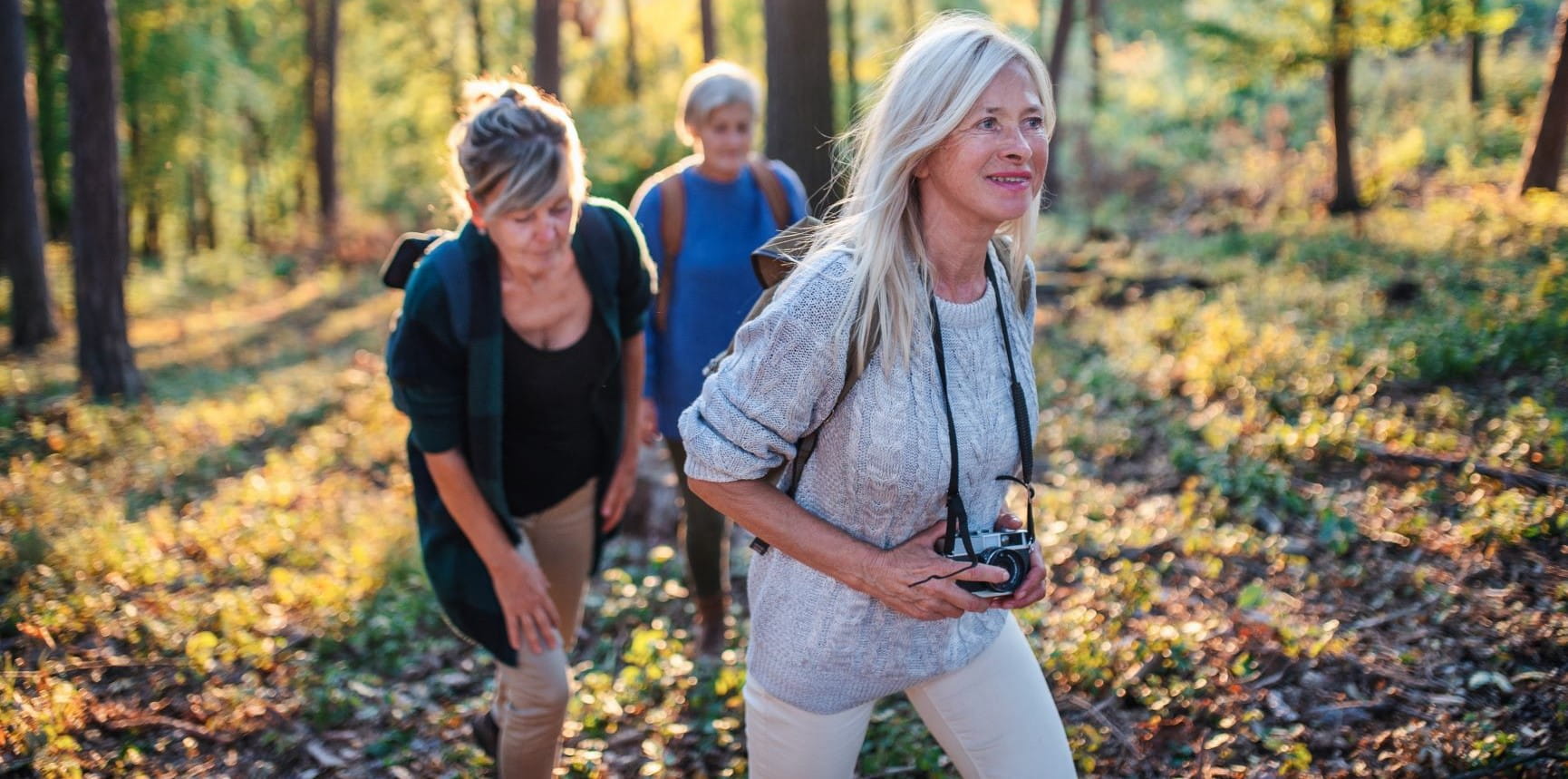
Resolutions don’t just have to be about diet and exercise – try these mental wellbeing changes, backed by science.

The fresh start of a new year offers the perfect opportunity to reset the way we think. Simple changes to our perspectives and thoughts can make all the difference.
Looking after our mental health can often be overlooked, but cultivating this healthy mindset can have physical benefits too. Just try it and you’ll see.
We’ve found ten ways to retrain your brain for a positive mental attitude for a lighter and brighter 2025.
Instilling a sense of wonder into your wanderings can measurably boost happiness. Researchers at the University of California, San Francisco, recruited 52 older people to go on one 15-minute walk a week.
Half were given no parameters, the other half were encouraged to experience awe. This is felt in a new place or by appreciating details often overlooked, such as leaves crunching underfoot.
The ‘awe’ group reported more positive moods than the control, which grew over the eight-week study.
Left unchecked, anxious thoughts can play on repeat, but there is a way to control them, the "worry time" technique, that’s routinely used by NHS cognitive behavioural therapists.
Set a time each day for worrying (not too near bedtime). When an intrusive thought pops up in the day, don’t ruminate on it, note it down.
Then, when your ‘worry period’ arrives, take 20 minutes to process the anxieties quietly, making a written plan to solve where possible or noticing if they have resolved themselves. Do daily to help develop control and perspective.
Try the "worry time" technique
“Humans do not like to be in the present moment,” says Dr Sam Akbar, clinical psychologist and author of Stressilient: How to Beat Stress and Build Resistance (Fourth Estate).
“A Harvard study found that people spend 47% of their time thinking about things that aren’t happening now, have already happened or may never happen. This is an excellent predictor of happiness – you can be doing the best activity in the world, but if you’re not present, you won’t appreciate it.”
Dr Akbar has a straightforward exercise to bring you back to the present: “Breathe deeply, look around, now name five things you can see, four you can hear, three you can touch, two you can smell, and one thing you can taste.
“Using positive words, in particular action verbs, reduces stress and increases motivation.”
Walk yourself happy
We've got more about the 54321 technique and other ways to walk yourself happy.

An hour less scrolling a day decreases anxiety and increases life satisfaction.
Scientists at Ruhr-Universität Bochum in Germany asked 226 people to give up their smartphones for 60 minutes a day. After a month participants reported feeling less anxious and depressed, while life satisfaction and physical activity increased.
The study’s authors thought reduced use was more sustainable than complete abstinence, with people using phones for 45 minutes fewer a day four months later.
Next time you’re doubting your abilities, say, ‘Yes, I can’.
Using positive words, in particular action verbs, reduces stress and increases motivation, according to studies.
Researchers at the Institute of Cognitive Sciences in France discovered that hearing a positive verb automatically increases the physical force with which people grip objects. And, at Friedrich Schiller University in Jena, Germany, scientists used MRI scans to monitor people’s reactions to negative words, and found they activated the part of the brain responsible for feeling pain.
A daily dose of Marmite can fight anxiety, according to two recent studies. Scientists at the University of York gave participants one teaspoon a day to see if its high concentration of vitamins B6 and B12 would raise levels of gamma-aminobutyric acid (GABA), a neurotransmitter that calms the brain. The participants had reduced brain responses to flickering visual stimuli after four weeks, suggesting an increase in GABA.
Academics at the University of Reading backed this up when they found that students who ate high levels of vitamin B6 (in spread or supplement form) for a month reduced their anxiety by 13%.
“Self-compassion, the cornerstone of Buddhism, is about showing the same kindness to yourself that you would to a friend or child who is suffering,” says Dr Akbar.
“A robust body of research shows that self-compassionate people experience less psychological distress, greater resilience and higher levels of satisfaction. Scans have shown that our brains react in the same way to self-criticism as they do to a physical threat.
"So treat yourself with understanding and recognise that we all make mistakes.”
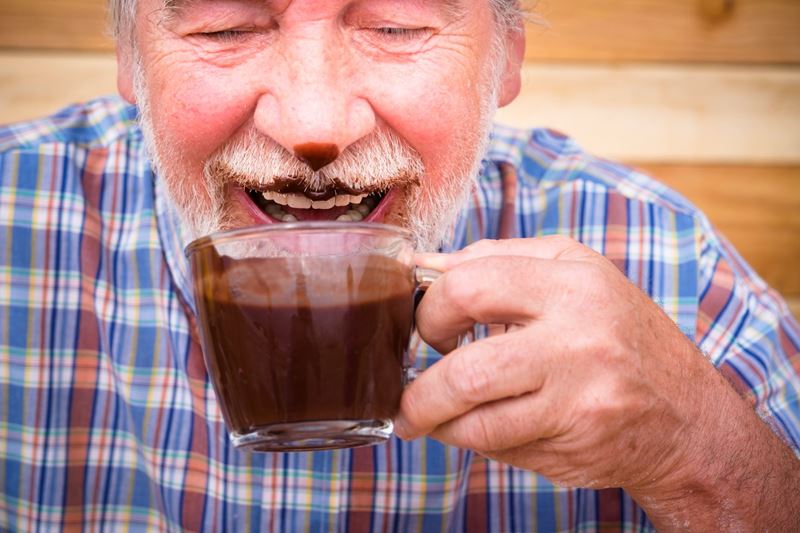
Daily dark chocolate consumption has been scientifically proven to increase happiness. Researchers at Seoul National University, South Korea, found that eating 30g a day of 85% cocoa content chocolate was linked with significantly improved mood. But those who ate 70% cocoa chocolate felt no benefits.
Academics put it down to microbial changes in the gut after discovering that the 85% group had higher levels of Blautia, a type of good bacteria associated with better mood.
Counting your blessings creates positive changes in your brain. “It can be difficult to evoke feelings of gratitude if you’re depressed, anxious or feel hopeless,” says psychotherapist Owen O’Kane, author of How To Be Your Own Therapist.
“The mind won’t automatically produce grateful thoughts at these times because it’s too busy producing fearful thoughts. But neuroscientific research indicates that when we are in gratitude mode, even if we force it, our brain will produce more feelgood chemicals, which will reduce anxiety quickly.”
O’Kane suggests closing your eyes and thinking of three things you’re thankful for, big or small – family, pets, the weather, say. Repeat them to yourself a couple of times to consolidate the beneficial impact. Do this on waking each day and it will become more effective.
Giving your time is a win-win – for you and the cause.
A study by the University of Exeter found that volunteers reduced their risk of dying by up to 22%, and were less likely to suffer from depression. It’s not only a great way of staying physically and mentally active, it’s also a great way to stay connected.
A US study among recently widowed older adults found that those who volunteered for two or more hours a week reduced their loneliness to the level of their married peers.
The positive effects are only felt if volunteers don’t feel over-burdened, so choose wisely.
Research says it takes 66 days of consistency to form a new habit.
So just think of the positive person you’ll be by spring.

Are you retiring at the wrong age? The best age to retire for your body, brain, happiness and pocket.


Everything you need to know about the lung infection, and how you could be ill with “walking” pneumonia without realising it.
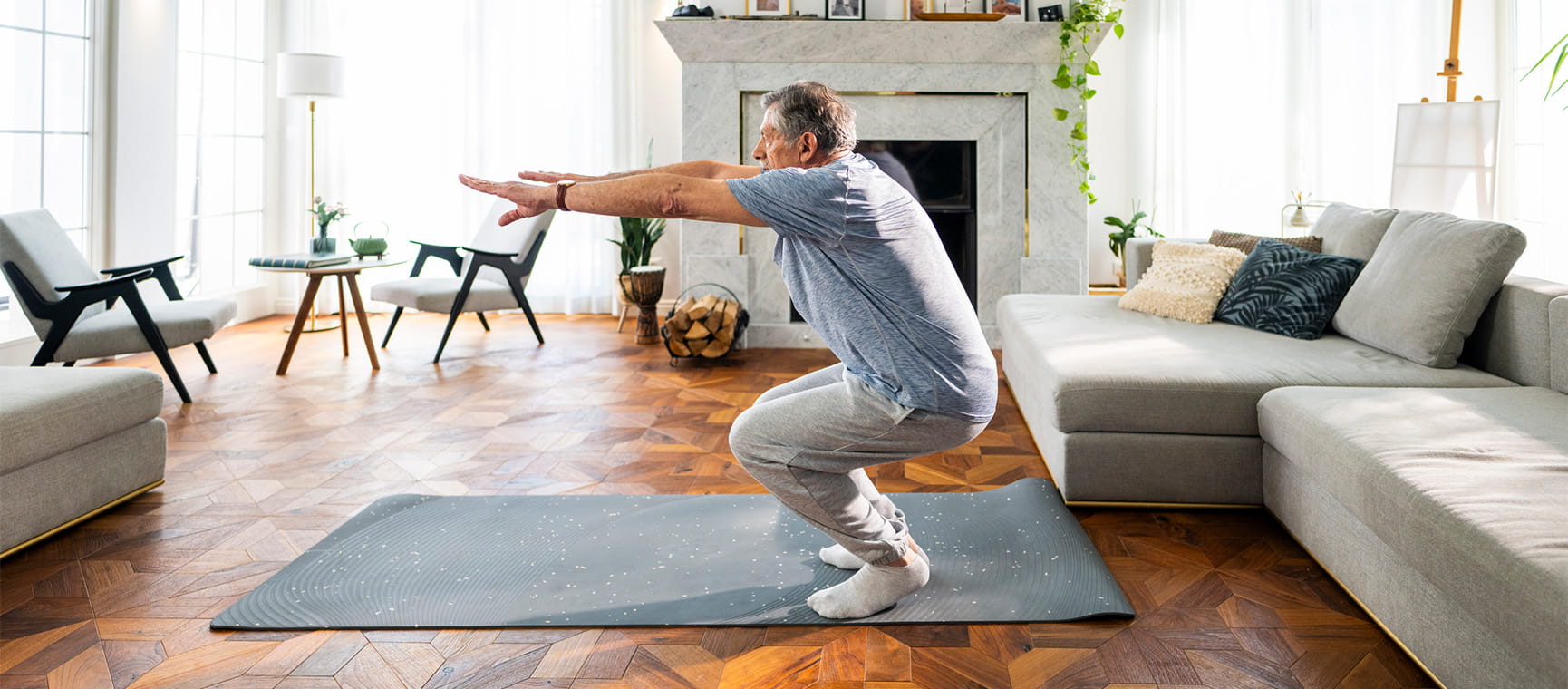
Strong calves for a strong mind: how they support our circulation and brain health, with easy moves to strengthen yours at home.


Our GP Dr Mark Porter explains what can cause itchy skin, which is a common problem as we get older.

Worried you’ve morphed into Victor Meldrew? Find out how to battle that bad mood, and what to do if you’re stuck with a grouchy loved one.

The benefits of heat and cold therapy, and how Nordic bathing won over our nervous writer.

Here’s how to spot the symptoms of heat disease and reduce your danger.

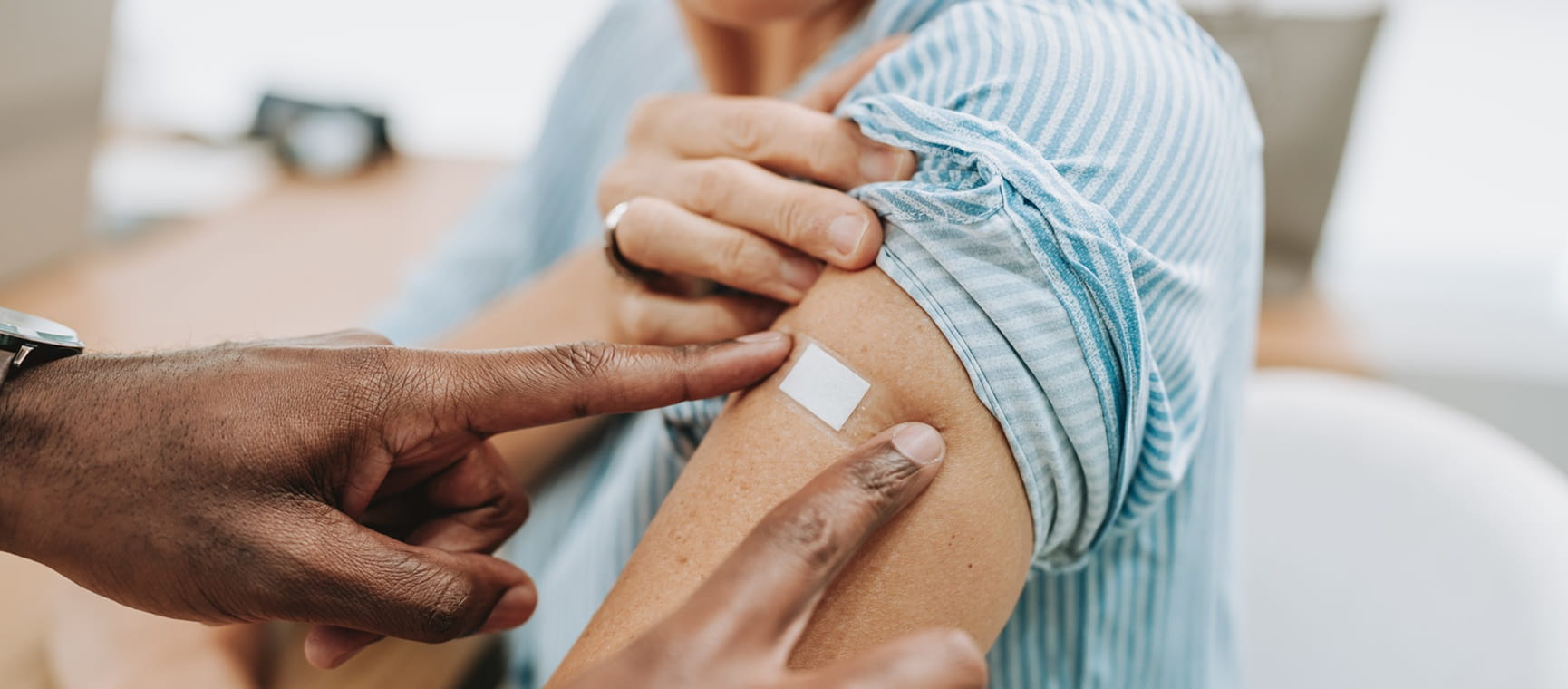
The NHS winter vaccination campaign kicks off next week. Here’s the lowdown on what you need to book.

Pilates for back pain – what to do if you are suffering, and five gentle exercises that could help.
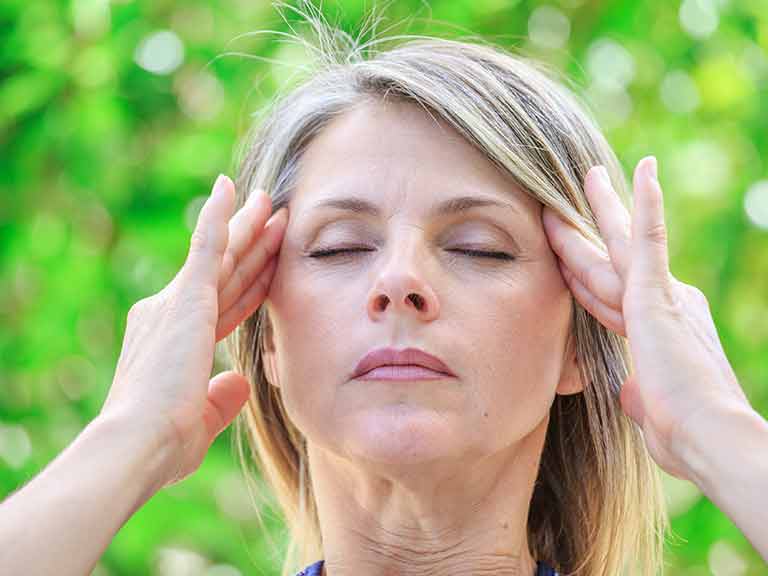
Dizziness or vertigo: a sensation of spinning, can stop us doing everyday things for fear of falling. Try these tips to stop feeling dizzy


You don’t have to put up with bladder leaks. We try out the latest pelvic floor gadgets for men and women.

Cataracts are a normal part of ageing. Learn how to spot the signs – and when it’s time to consider surgery.